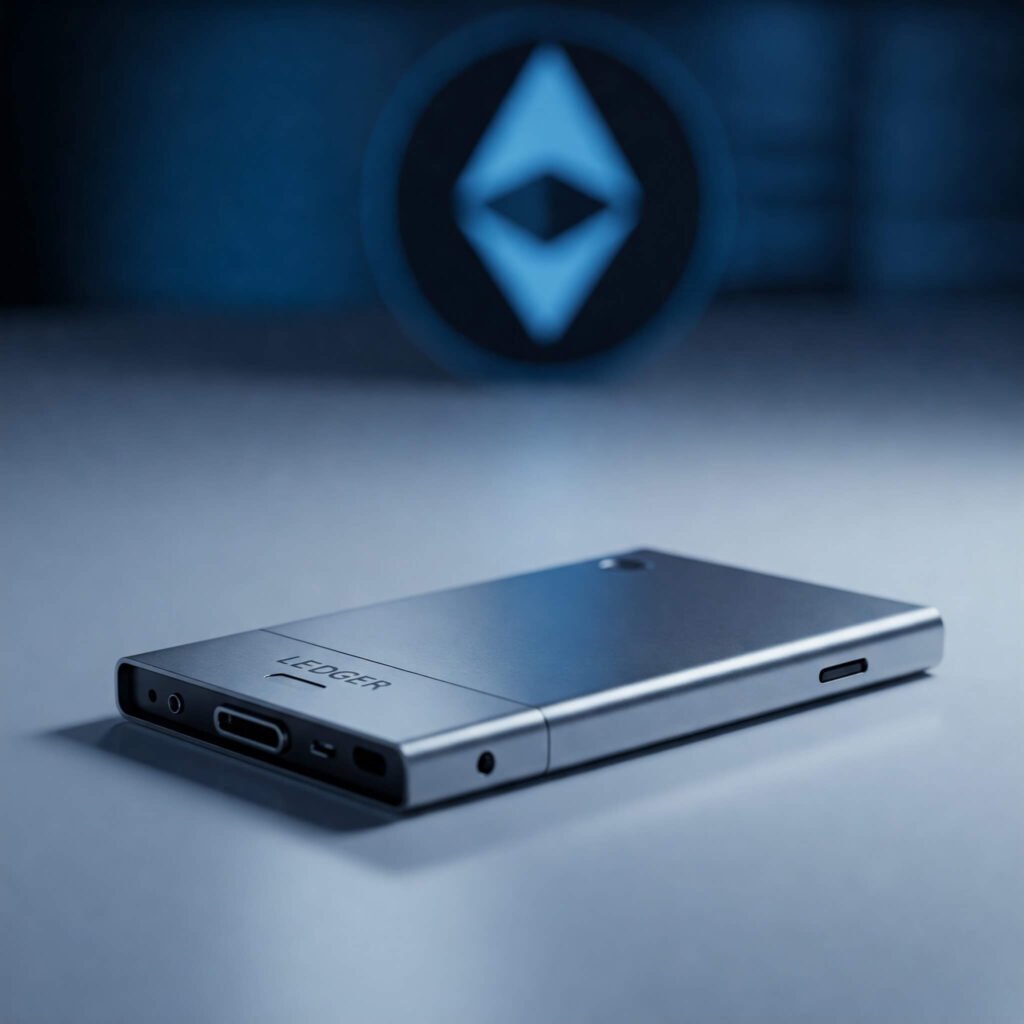the cold wallet vs hot wallet debate is hitting me like a soggy Portland rainstorm as I sit in my cramped apartment, surrounded by empty kombucha bottles and a laptop that’s one coffee spill away from death. Just last month, I freaked out when my hot wallet app glitched, thinking my Bitcoin was gone – I was this close to crying into my artisanal toast. The air smells like damp socks and regret, and I’m diving into whether cold wallets or hot wallets are better for storing your cryptocurrency. I’m no crypto guru – my portfolio’s more like pocket lint – but this cold wallet vs hot wallet thing is a big deal in 2025’s wild crypto scene. I’m spilling my raw, messy, sometimes contradictory thoughts on keeping your digital coins safe. Let’s wade through this blockchain swamp together.
My Panic Attack Over Cold Wallet Vs Hot Wallet Choices
Picture this: I’m at a Stumptown coffee shop, dodging hipsters and scrolling X, when I see a post hyping cold wallets – the cold wallet vs hot wallet convo is everywhere. Cold wallets, like Ledger, keep your crypto offline, which is clutch for security, but I’m lazy and love the quick access of hot wallets like MetaMask.<grok:render type=”render_inline_citation”>1</grok:render> I tried a hot wallet for trading Dogecoin last year, thinking I was slick, only to get a phishing scare that had me sweating bullets. Big platforms like Coinbase push hot wallets for ease, but Forbes says cold storage cuts hack risks big time.<grok:render type=”render_inline_citation”>2</grok:render> The cold wallet vs hot wallet debate feels like choosing between safety and convenience, and I’m torn – I want both but keep screwing up. Like, seriously, why’s this so stressful?

Why Cold Wallets Win in the Cold Wallet Vs Hot Wallet Showdown
Diving into the cold wallet vs hot wallet debate, cold wallets are like Fort Knox for your crypto. I got a Ledger after my hot wallet scare, and it’s chilling in my desk drawer, safe from hackers but a pain to access when I’m impulse-trading. CoinDesk says cold wallets are 90% safer from hacks, which is why I’m sold, even if I forgot my PIN once and panicked for a week.<grok:render type=”render_inline_citation”>3</grok:render> I bragged to my buddy about my “secure setup,” then realized I’d left my seed phrase on a napkin – classic me. Cold storage is great for protecting digital assets, but it’s not idiot-proof if you’re, well, me. Still, I’m hyped for safety, even if it’s a hassle.
My Hot Wallet Fails in the Cold Wallet Vs Hot Wallet Saga
Man, the cold wallet vs hot wallet struggle exposes my dumbest moves. I used a hot wallet for quick trades, thinking I was a crypto king, only to click a shady link and nearly lose $200 – I was shaking, checking my app in the rain outside a bar. Hot wallets are convenient but risky, with reports saying 70% of crypto thefts hit online wallets.<grok:render type=”render_inline_citation”>4</grok:render> My contradictory vibe? I love the ease of hot wallets but hate the paranoia. Tip from my mess: use hot wallets for small amounts only, and don’t be me, trading at 2 a.m. after too many IPAs.

Why Hot Wallet Convenience Matters in Cold Wallet Vs Hot Wallet
Zooming in on the cold wallet vs hot wallet debate, hot wallets shine for accessibility. I’ve been using MetaMask for DeFi apps, checking it from my soggy balcony with Portland’s drizzle mocking my crypto dreams. Investopedia says hot wallets are great for daily transactions, but you gotta lock down 2FA.<grok:render type=”render_inline_citation”>5</grok:render> I skipped 2FA once, thinking I was too busy, then spent a week resetting passwords after a glitch. My advice? Use hot wallets for pocket change, but keep your big bags in cold storage. Insurance Market News: What You Should Know Before Buying Coverage
Choosing the Right Wallet in Cold Wallet Vs Hot Wallet for 2025
Looking ahead, the cold wallet vs hot wallet debate has me cautiously stoked, scribbling notes while fog rolls in outside my window. New multi-signature wallets are popping up, blending security and ease, which I’m eyeing since I’m paranoid about hacks but lazy about access.<grok:render type=”render_inline_citation”>6</grok:render> I’m dreaming of a hack-proof crypto stash, but scared I’ll botch it with another dumb click. The cold wallet vs hot wallet choice depends on your vibe – I’m leaning cold for safety but keeping a hot wallet for play money.
Outbound Link: Explore hot wallet safety tips at Coin perplexed’s Security Guide.
Cold Wallet vs Hot Wallet: Which Should You Choose?
Choosing between a cold wallet vs hot wallet depends on your goals, risk tolerance, and crypto habits. Here are some scenarios to guide your decision:
- Choose a Cold Wallet if:
- You’re holding large amounts of cryptocurrency (e.g., >$5,000).
- You plan to HODL for years without frequent transactions.
- Security is your top priority, and you’re okay with less convenience.
- Choose a Hot Wallet if:
- You trade frequently or use crypto for daily purchases.
- You’re dealing with smaller amounts you can afford to risk.
- You value quick access over maximum security.
Pro Tip: Many investors use both! Keep most of your crypto in a cold wallet for safety and a small portion in a hot wallet for trading or spending.

Tips for Winning the Cold Wallet Vs Hot Wallet Game
Here’s my shaky playbook for storing your cryptocurrency:
- Go cold for big stacks: Get a Ledger or Trezor for max security – Ledger saved me.
- Use hot for small trades: MetaMask is quick but keep it tight with 2FA.
- Hide your seed phrase: Lock it in a safe, not a napkin like me.
- Stay informed: Check CoinDesk for wallet trends.
Anyway, that’s my raw take on the cold wallet vs hot wallet debate – messy, human, and full of my screw-ups. I’m just trying to keep my crypto safe while dreaming of mooning coins. Got wallet tips or horror stories? Hit up Investopedia for more or drop a comment – let’s swap tales over virtual coffee.
Outbound Link: Check out Blockchain.com’s Security Tips for more ways to stay safe.
Conclusion: Make the Right Choice for Your Crypto
The cold wallet vs hot wallet decision comes down to balancing security and convenience. Cold wallets offer unmatched protection for long-term storage, while hot wallets shine for active trading and small transactions. By understanding their differences and aligning them with your needs, you can confidently secure your cryptocurrency.




